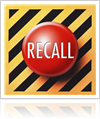Watch Out for Defective Cars
Posted on May 7, 2012 9:28am PDT

After consumers began reporting crashes from unintended acceleration and other problems, Toyota initiated three separate but related recalls of Toyota automobiles. At the end of 2009, almost four million vehicle owners received a notice for the recall of floor mats for their Toyota vehicles, specifically certain Corolla, Lexus and Pontiac models. Toyota continued to recall more vehicles in 2010 for a pedal entrapment/floor mat problem and for an accelerator pedal problem as well.
As of February 2010, Toyota has increased the recall to include 9 million vehicles worldwide. The National Highway Traffic Safety Association (NHTSA) alleged that 37 deaths were caused by these injuries, and the United States Transportation Secretary advised owners affected by the recall to stop driving their vehicles until it could be fixed by a dealer. All around the country, complaints began to emerge about accidents that were caused by these product defects.
The complaints ranged from being unable to stop when needed to claims that applying the brakes actually made the car speed up. One driver, Willette Green, received a ticket after she tried to apply her brakes to stop at a red light and instead, plowed through fences and groups of people before hitting a nearby guardrail. If she had known that her car could sporadically malfunction and speed up in a congested area, she would not have risked driving the vehicle. Another woman filed a lawsuit on the behalf of her husband who was killed in a crash when their Toyota vehicle accelerated out of control. Other similar stories surfaced around the country and many Toyota drivers filed reports with the NHTSA.
It didn't take long before an official lawsuit was filed against Toyota Motor Corporation. There were at least 89 lawsuits filed in U.S. federal courts against Toyota or its subsidiaries, and plaintiffs sought damages for personal injury or wrongful deaths that resulted from the product defects. Other lawsuits were also filed for loss of resale value or a drop in the value of shares held by Toyota dealers. Even if Toyota only awarded each driver $500, a conservative estimate, Toyota would end up losing $3 billion in economic loss damages alone. That number does not include the possible payouts for wrongful death or injury cases.
Toyota isn't the first automaker to be forced to pay vehicle owners for lost value because of vehicle safety problems. In 2008, Ford compensated more than 800,000 Explorer owners who sued because of rollover damages, and each owner was given a voucher of $300-$500 to buy new Ford products. Toyota could end up facing an even larger payout depending on the judge's decisions about adding attorneys' fees to a plaintiff's award.
The Toyota recall case made it clear that the defective manufacturing of one automobile part or product can quickly upset the lives of its drivers and cause lasting damage. For individuals who suffered traffic tickets and citations as a result of the defect, they were left to suffer consequences such as high fines, license revocation and license suspension for something that was out of their control. Faulty products can damage property, cause permanent physical damage and forever change the lives of those who must deal with the aftermath. If you have been the victim of a defective product, it is important that you stand up for your rights and the rights of other drivers. No one benefits from ignoring a faulty or defective product, and your actions could save the lives of many others. It is wise to seek both counsel and legal representation from a car accident attorney before proceeding with a claim or lawsuit.